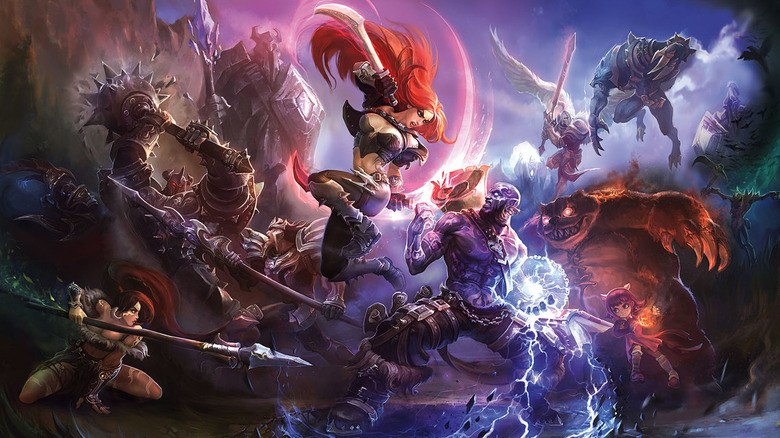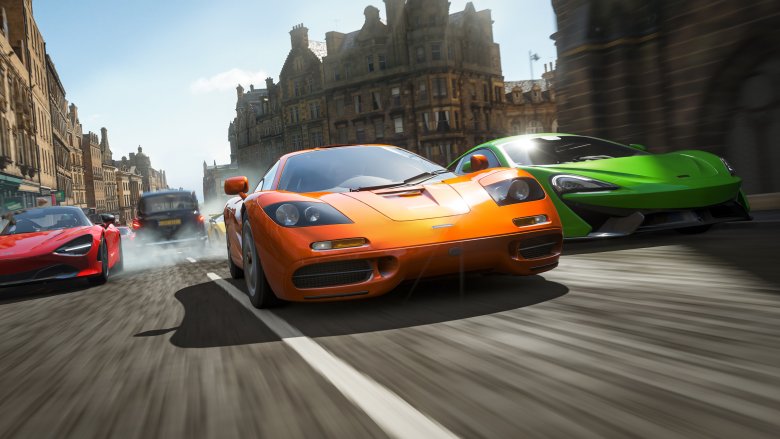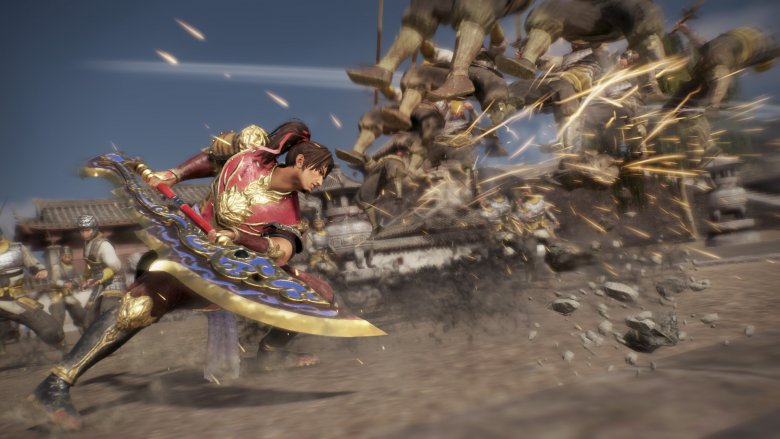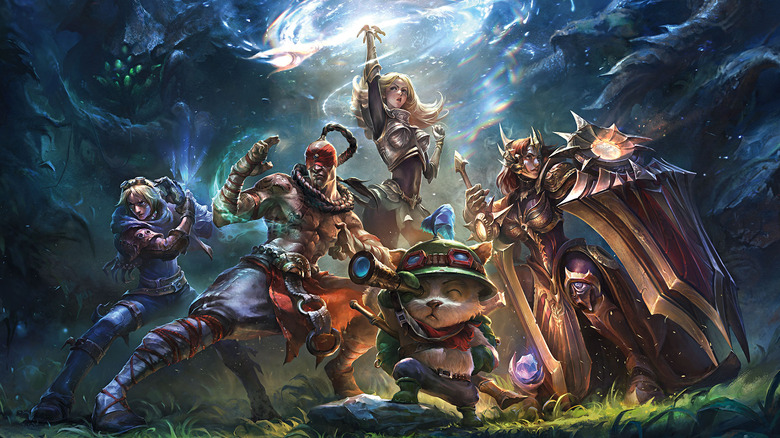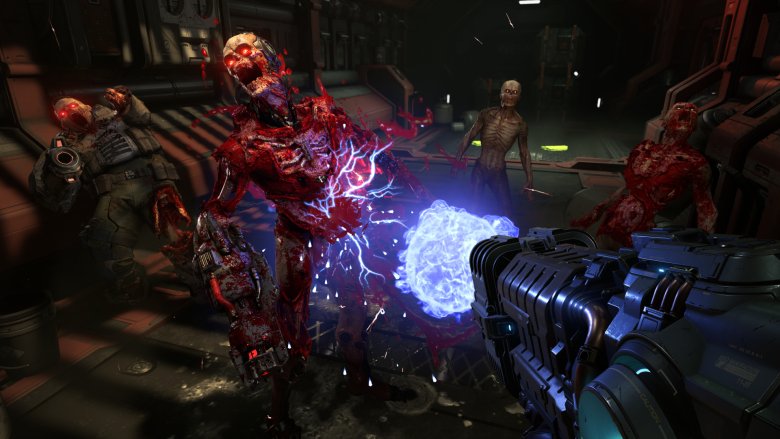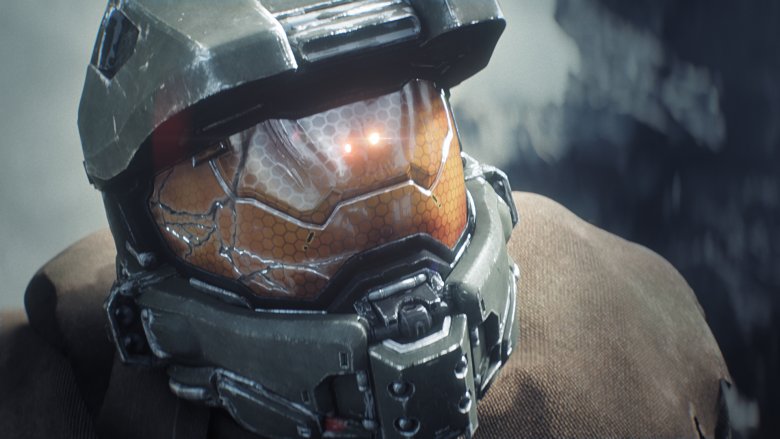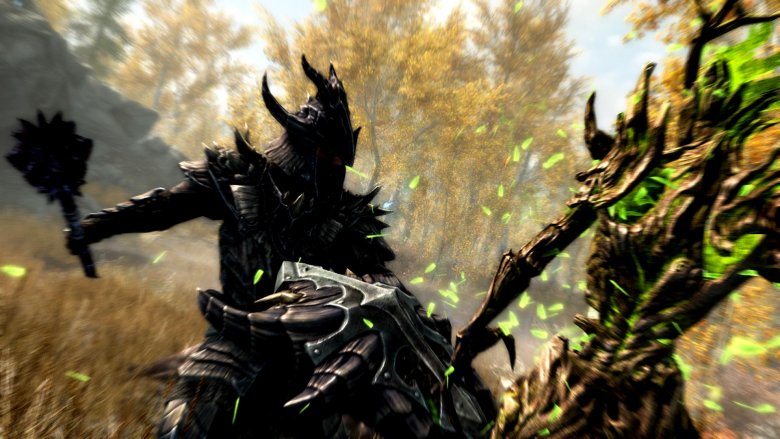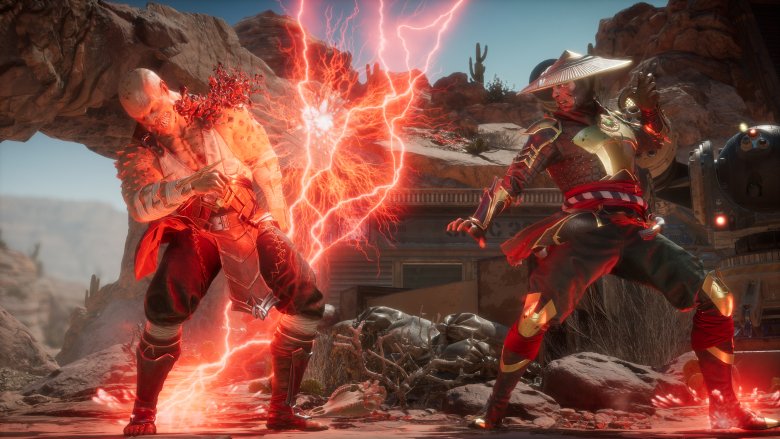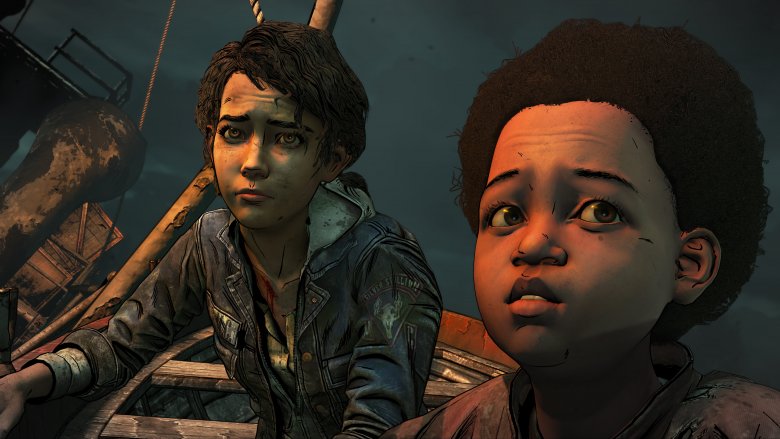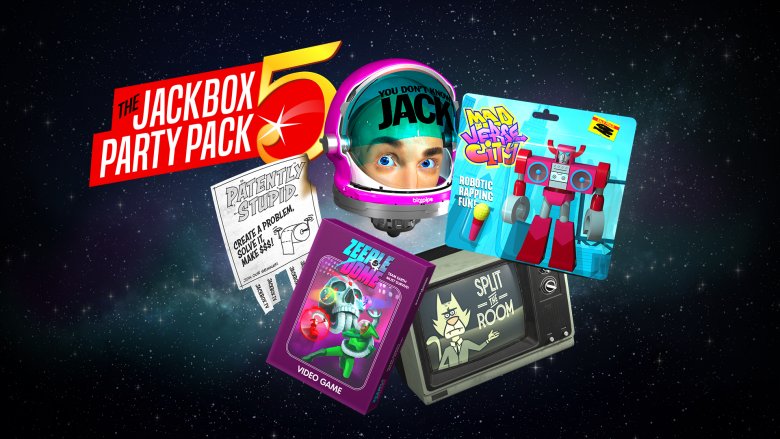Game Studios That Are One-Trick Ponies
Sometimes, a studio creates a rich universe that lends itself to further installments. In other cases, a developer can build one online, persistent game and maintain it for years. Some studios land somewhere else, where the mechanics among all their unrelated games are familiar, if not formulaic. Regardless, there are many ways for studios to find their calling and exploit it. If they do that and not much else, they can be considered one-trick ponies.
The term "one-trick pony" often comes off as derogatory or insulting. It implies that someone is only good at one thing. But when it comes to game studios, that isn't necessarily a bad thing. After all, these developers are in the market to make money, and if they find a niche they can skillfully exploit, then it's their right to do so. After all, iteration can produce a more refined product.
However, this practice could get problematic for consumers when the studio runs out of ideas. At some point, the market will demand something new, fresh, and exciting. If the studio can't deliver, it might lose clout. Worst case scenario, the studio may never regain the reputation it once had.
We've gathered a list of one-trick game studios, all of which fit the bill in different ways. They've all reached varying levels of success with their games, but we can agree on one thing: these developers all have at least one thing they're good at.
Infinity Ward: Rising to the call of duty
If there's one thing you can bet on in the video game industry, it's that year after year, Activision will publish a Call of Duty title. The first-person shooter franchise made $10 billion by 2014, so it's no surprise that the publisher wants to milk this cash cow for all that it's worth. By now, everyone knows what these games look like.
The franchise all started with the very first Call of Duty, developed by none other than Infinity Ward. Since then, the studio has been responsible for a litany of entries in the franchise, including the ever popular Modern Warfare series. At this point, the question isn't, "What game will Infinity Ward make next?" Instead, it's, "What's the name of their next Call of Duty?"
To be fair, the studio hasn't made every Call of Duty game in existence. Infinity Ward has been sharing development duties with Treyarch and Sledgehammer Games, alternating with them on a year-by-year basis. Nonetheless, first-person shooters are seemingly all Infinity Ward knows, and that identity is evident in every facet of the studio. Consider this: when Jason West and Vince Zampella left Infinity Ward, they formed Respawn Entertainment, and the first game they made was another first-person shooter. To be fair, Titanfall and its giant mechs stand out from Call of Duty, but their roots show through.
Turn 10 Studios: Yet another racing game on the horizon
Rev your engines and get ready for a marathon of Forza games. Since it was founded in 2001, Turn 10 Studios has been the powerhouse behind Xbox's premiere racing franchise. Starting with Forza Motorsport in 2005 on the original Xbox, the studio would eventually be responsible for six more Motorsport titles. In these games, players would pick a car from a list of real-world motor vehicles and race them on various tracks. You can customize each car to a shocking degree, enough to satisfy any budding gearhead.
But it doesn't stop there. Turn 10 also teamed up with Playground Games to produce the Forza Horizon series. There are four of these games to date, and each one takes you to a sandbox full of races and challenges. All the cars are still true to life, coming from manufacturers like Honda, Lamborghini, and Alfa Romeo. Horizon plays similarly to Motorsport, but the open world gives players more freedom to explore with their car of choice.
If you aren't that into racing sims, your eyes might have glossed over a bit. And really, that's a testament to Turn 10's identity. Clearly, the studio can produce competent, successful racing games. But that's all they do. Perhaps the most unexpected game in their repertoire is Forza Street. It's still a racing game, but it's on mobile instead of consoles. We're still wondering if Turn 10 plans to ever shift gears in the future.
DICE: Success on the battlefield
DICE has been in the games industry since 1992, with its first project being a pinball game, believe it or not. In fact, for the company's first decade, it made a wide variety of software you might not have expected. In 1994, they made a puzzle platformer called Benefactor, and four years later, they made a racing game called Motorhead. It wasn't until 2002 that the studio found its true calling when it released Battlefield 1942.
Since then, Battlefield has been the name of the game for DICE. We've been to the future with Battlefield 2142, and we've seen the debut of the Frostbite Engine in Battlefield: Bad Company. No matter the setting, though, you can expect a squad-based first-person shooter that lets you pilot a variety of vehicles as you slaughter your enemies.
We're not saying there hasn't been any innovation with each new game. The series' penchant for destruction culminated in Battlefield 4's Levolution, a mechanic that let players destroy major centerpieces. But when you put these games side by side, the mechanics and goals remain largely unchanged.
When DICE tried branching off into something new, we got Mirror's Edge and its eventual sequel, Mirror's Edge: Catalyst. These games retained the first-person view, but they focused on freerunning and parkour rather than shooting guns. Unfortunately, Catalyst didn't get the most favorable reviews, further proving DICE's skills only shine best on the battlefield.
Omega Force: Xtreme Legends
In 1997, Omega Force developed a game called Dynasty Warriors for the original PlayStation. It was a one-on-one fighting game set in a 3D arena, and its aesthetic was inspired by the Chinese historical novel Romance of the Three Kingdoms. Some readers might be scratching their heads at the notion. A Dynasty Warriors game with only two characters on screen? That's practically unheard of nowadays.
Since Dynasty Warriors 2 dropped in 2000, the franchise has been all about the historical-fiction power fantasy. You play as one character, and you slaughter armies of enemies with wide-reaching, absurd attacks. We're up to Dynasty Warriors 9 now, and the only major difference is the addition of an open world — and that was just added in the most recent iteration.
But the studio has made other games as well. Samurai Warriors features the same musou-style gameplay but with samurai instead of Chinese soldiers. One Piece: Pirate Warriors is similar but with One Piece characters. Hyrule Warriors, unsurprisingly, brings the musou formula to The Legend of Zelda universe. At this point, we're sure you can guess what Fire Emblem Warriors is all about.
There are far more Warriors games under Omega Force's belt, all covering a variety of other licenses. Frankly, their formula remains the same across the board. The studio recently announced its collaboration with Atlus, which will give us Persona 5 Scramble: The Phantom Strikers. Even turn-based RPGs aren't safe from the musou.
Riot Games: An army of legends
In the 2010s, League of Legends became a key player in esports thanks to all of its fans around the world. Riot Games has worked on its MOBA since 2009, fostering that rabid, global fan base. Countless inside jokes and memes have been thrown around, and you find find people talking about the game on all sorts of forums.
When it comes to the game itself, Riot patches the game frequently, balancing more than 140 unique characters. Every few months, the studio even drops a brand new champion, shaking up the entire meta. All this effort led to something valuable, considering League of Legends was the most-played PC game on the planet back in 2012.
Clearly, a lot of work goes into maintaining this single game. Riot has spent many resources polishing League of Legends over the past decade. However, no other major piece of software has come out of the studio since. They're allegedly working on something new, but as of the time of writing, nothing has been officially announced.
In this case, it makes sense for Riot to sustain League of Legends for as long as they can. The game has seen wild success, both as a video game and as an esport, thanks to its one-trick pony studio. That success doesn't change the fact that they've only proven their skills as developers of one kind of game.
id Software: Trigger happy
In many ways, the modern first-person shooter genre owes its existence to id Software. Based in the Dallas-Fort Worth region in Texas, the studio found its calling when it released Wolfenstein 3D in 1992. The game busted the door wide open for first-person shooters, and it set up id for years of success down the line. Iconic franchises like Doom and Quake came from the studio, the latter of which solidified the WASD control scheme that's widely used today on PC games.
When you look through id's catalog of games, you'll notice those three names pop up frequently. Occasionally, you'll find other titles, like Commander Keen or Rescue Rover. Nonetheless, no one can deny that everyone knows the studio for its FPS chops. Even its newest IP, Rage, carries over many similar game mechanics.
In fact, id is so wrapped up in its shooters that it recently returned to its roots for 2016's Doom. Clearly, the studio has that gameplay genre nailed down, as it's almost exclusively what it has worked on in its lifetime.
343 Industries: The master of Master Chief
When Microsoft threw its hat into the console ring, it started off pretty strong with the original Xbox. One of its launch titles was none other than Halo: Combat Evolved, which released to glowing reviews. Bungie developed a hit, and it continued to produce the series even after it parted ways with Microsoft in 2007. Eventually, the studio moved toward a different destiny, but of course, there was no way Microsoft would let Halo die with Bungie's departure.
Enter 343 Industries. Located in Redmond, Washington, this studio was built exclusively to fulfill one need: the demand for more Halo. Starting with Halo 4 in 2012, 343 would become well acquainted with Master Chief and Cortana. The studio's entire roster of published games consist of Halo titles, and in 2014, it even gave Bungie's original trilogy (and it's own first game) a graphical update in the Master Chief Collection.
343 would eventually go on to develop games like Halo 5: Guardians and the upcoming Halo Infinite. The studio hasn't strayed outside the bounds of its universe, and for the foreseeable future, it doesn't look like it plans to. If Halo Infinite lives up to its name, 343 might only develop Halo games for all of eternity.
Bethesda Game Studios: An engine with more bugs than features
Have you played a Bethesda game recently? More specifically, one developed by Bethesda Game Studios? There's a lot about them that feels eerily familiar, despite having different settings. Their list of games include all the mainline Elder Scrolls games since Morrowind as well as Fallout 3, 4, and 76 (yikes). Essentially, we're talking about games that Todd Howard has worked on.
When you think about Fallout and Elder Scrolls, in theory, they're wildly different games. A post-apocalypse running on an economy of bottle caps sounds far removed from the fantasy realm of Tamriel. But when you play these games, things are more similar than you'd think. The way you move and interact with the world and its NPCs feel identical, and a lot of the physics work the same.
A lot of this familiarity can be attributed to the Gamebryo and Creation engines. Gamebryo was used for many of Bethesda Game Studios' early projects, from Morrowind up to Fallout 3. For Skyrim, the studio debuted the Creation Engine, which is just an upgraded version of Gamebryo. Both of these engines were used interchangeably among all their major releases, making them feel the same, regardless of setting.
NetherRealm Studios: In need of a c-c-c-combo breaker
NetherRealm Studios rose from the ashes of Midway under Warner Bros. Interactive Entertainment in 2010. With Ed Boon at the helm, it only made sense that the studio's first game would be a Mortal Kombat title. The bloody, bone-crunching fighting game rocked the industry back in the 1990s, and NetherRealm brought it all back in gorily explicit detail in 2011.
In 2013, the studio put another IP under its belt with the release of Injustice: Gods Among Us. Although it featured a variety of DC Comics characters squaring off against each other, it shared a lot of similarities with the previously released Mortal Kombat. Characters moved at a slow speed in both, and special attack inputs followed identical patterns. The only thing Injustice didn't have was the gore.
NetherRealm would go on to release a sequel to Injustice and two sequels to Mortal Kombat, all of which felt familiar. Between their major console releases, they developed mobile games. Some of them were based on their already-established IP. However, a handful of their mobile games are based on other IP, as seen in WWE Immortals and Batman: Arkham Origins Mobile.
Nonetheless, even their mobile games play like their console titles. Looking at Batman: Arkham and WWE Immortals, both bear a resemblance to Injustice and Mortal Kombat, with the slower movement and animations. Even through the inferior mobile graphics, you can tell these games were all cut from the same cloth.
Telltale Games: The industry will remember that
Few studios have taken the term "interactive storytelling" to heart as much as Telltale Games did. From The Walking Dead to Tales from the Borderlands, from The Wolf Among Us to even more Walking Dead, this studio brought many stories to life. At some point, they even obtained the rights to make games based on Batman and Game of Thrones. Essentially, if you had any interest in geek culture, Telltale had a game with your name on it.
Since 2012, the studio produced 13 seasons of various games before its sudden closure in 2018. If you play any of those games, though, you'll notice they all follow a similar formula. They feature light point-and-click elements that simulate exploration, while QTE sequences take care of any high-speed action. Every game features multiple dialogue options at every turn. Even the phrase "They will remember that" shows up in various forms across all of the studio's works.
In many ways, a lot of Telltale's games play similarly out of necessity. After all, they couldn't reinvent the wheel between every season while maintaining their release schedule. In a recent Noclip video that detailed Telltale's closure, cinematics artist Kent Mudle all but confirmed that the studio was creatively suffocated, forced into formulaic concepts by executives. While the circumstances are unfortunate, Telltale fits the bill as a one-trick pony.
Jackbox Games: They only know Jack
At this point, if anyone mentions the word "Jackbox," we instinctively start pulling out our phones. Jackbox Games strives to liven up all your social gatherings with its quirky yet accessible titles. As of this writing, they've made five Jackbox Party Packs, with a sixth one on the way. Each of them come packed with five party games, and you'll interact with all of them the same way. Each of them use a mix of one shared screen, such as a TV, and players' personal devices, like phones or tablets. Prompts show up on the TV, while everyone responds to them via their phones.
You can bet that every Jackbox game plays this way, and there isn't any sign of change on the horizon. Sure, the games vary; in some cases, you draw on your screen, while in others, you type answers. But when you pull back and look at them holistically, all of the studio's releases fit one particular niche: party games. Even outside of their Party Packs, they have released similar standalone titles, such as Drawful 2 and Quiplash. Jackbox has captured a certain segment of the video game market with its innovative party game mechanics, so it only makes sense that they'll keep doing what they do so well.

